Argentina will go into a strict period of confinement for nine days as it grapples with the “worst moment” yet of the Covid-19 pandemic, President Alberto Fernández announced Thursday.
"We must accept that we are in a critical moment," said the president in a televised speech, hours after the Health Ministry recorded more than 35,000 new cases in one day.
A total of 3,447,044 people have now been infected with Covid-19 in Argentina since the start of the pandemic, which has claimed 72,699 lives.
“We must come together to overcome this catastrophe,” he warned.
Only businesses deemed essential, such as supermarkets and grocery shops, will remain open under the lockdown. In-person classes will be suspended at schools, while restaurants will only be able to open for home delivery and pick-up services. Citizens will only be allowed to circulate close to their homes between the hours of 6am and 6pm, with all in-person social, economic, educational, religious and sporting activities banned.
These new restrictions will be similar to ones imposed a year ago at the start of the pandemic to try to relieve the overburdened healthcare system.
"The measures will be in force from zero hours on May 22 to midnight on May 30," said Fernández, who pointed out that only three of the nine are working days, given there are holidays on May 24 and 25 (the former was restored by the government hours earlier).
From May 31, existing restrictions will be restored, with a new lockdown put in place for the weekend of June 5 and 6, he added.
The president said that all citizens should take the virus crisis seriously, pointing out that it was a “critical” moment and that the country must not “naturalise so much tragedy.”
On Thursday Argentina recorded 435 more deaths from Covid. Over the past seven days it has seen an average of around 27,000 new cases and nearly 500 fatalities per day.
“Today, the problem is very serious,” said Fernández, who said that intensive care units were at 72.6 percent capacity nationwide, rising to 76.4 percent in the Buenos Aires Metropolitan Area (AMBA), where the majority of cases have been recorded.
“I am aware that these restrictions create difficulties. Faced with this reality, there is no choice but to choose the preservation of life,” he argued. “I am not going to accept that this amount of contagion and deaths be naturalised.”
Fernández also confirmed the arrival of some four million Covid-19 AstraZeneca vaccines this month, mainly from Mexico, the result of a co-production effort between the two countries. Praising the support of Russian President Vladimir Putin, the president also said another million Sputnik vaccines from Moscow would arrive soon.
About 18.7 percent of Argentina’s 45 million citizens have received at least one shot while just 4.8 percent are considered fully vaccinated.
The president also said the national government would continue to support companies and individuals facing financial strain, offering aid and subsidies that would in part be funded by his administration’s so-called ‘wealth tax,’ a capital levy on individuals with large fortunes and the increase in tax revenue so far this year. Healthcare workers are to be given extra pay, while funding for food stamp and child support schemes will also be boosted.
Additional social spending tied to the latest Covid wave – and not anticipated in the 2021 budget – will cost 480 billion pesos (US$5.1 billion), or 1.3 percent of gross domestic product, according to the presidential press office.
Eight out of 10 Argentines say the pandemic is affecting their personal financial situation, according to a poll by Buenos Aires-based consulting firm Poliarquía conducted between May 6 and 7. The poll shows that 48 percent of Argentines don’t approve of Fernández’s management of the health crisis.
City Hall falls in line
Fernández called on citizens to “redouble” their efforts against the virus and said that while the restrictions he had imposed back in April “had a positive impact in the first weeks,” cases had increased over the past several days.
In a nod to the row between the National and Buenos Aires City governments over the continuation of in-person classes at schools – which City Hall successfully challenged in the Supreme Court – Fernández said that “it is evident that there were decisions that we did not share – some of which were judicially endorsed and weakened the forceful decisions that we had proposed to control a critical situation."
The Peronist leader said there was no margin of error this time around. "We must end the confusion. A country cannot have 24 health strategies. What happens in each province or in the Capital, then impacts upon the entire country. The virus does not recognise limits or jurisdictions," he remarked.
Speaking at a later press conference, City Mayor Horacio Rodríguez Larreta said he would accompany the president’s measures.
"The cases that had begun to decline rose again a week ago. We are very concerned. The occupancy of the intensive care system in the City's public system is at 83 percent," he said.
The opposition leader said that while schools would always be the last thing his administration would close, but confirmed that in-person classes next week would be postponed.
“Wednesday, Thursday and Friday of next week children will not have classes. But as for us every day counts, they will recover them in December," said Rodríguez Larreta, declaring that he would add three teaching days to the school calendar.
"It is very difficult for me to take this type of measure, but we are convinced that it is what has to be done," said the City leader.
Rodríguez Larreta confirmed that playgrounds in squares and parks would be closed, with 3,000 “prevention agents” set to patrol the streets to ensure restrictions were followed. He also said 71 road access points to the capital would be closed, with checkpoints tightened at those that remain open and at underground Subte stations.
In a decision that may spark criticism from Juntos por el Cambio hardliners and libertarians, he also announced that 5,000 staff from City Hall would tour apartment blocks to check that common spaces were not in use, including gyms, parrillas and meeting halls.
Warning that infections were occurring regularly at social gatherings, he encouraged residents to alert the authorities if they became aware of clandestine parties or meetings between groups in private homes.
At the time of writing, there had been little reaction from opposition lawmakers, many of whom have been fiercely critical of the government's handling of the pandemic.
The return to a severe lockdown adds more challenges to Argentina’s already fragile economic recovery ahead of mid-term elections at the end of the year. Economic activity shrank in February and March from the previous months, while a recent ban on meat exports triggered a strike by farm groups. Inflation is accelerating.
Argentina’s economy contracted nearly 10 percent last year due in part to the strict lockdown.
– TIMES/PERFIL/AFP















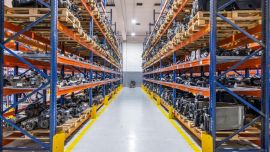





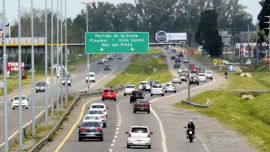
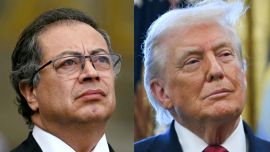
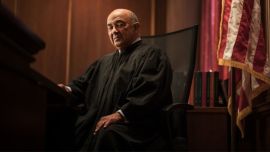
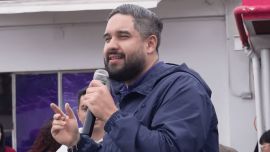

Comments